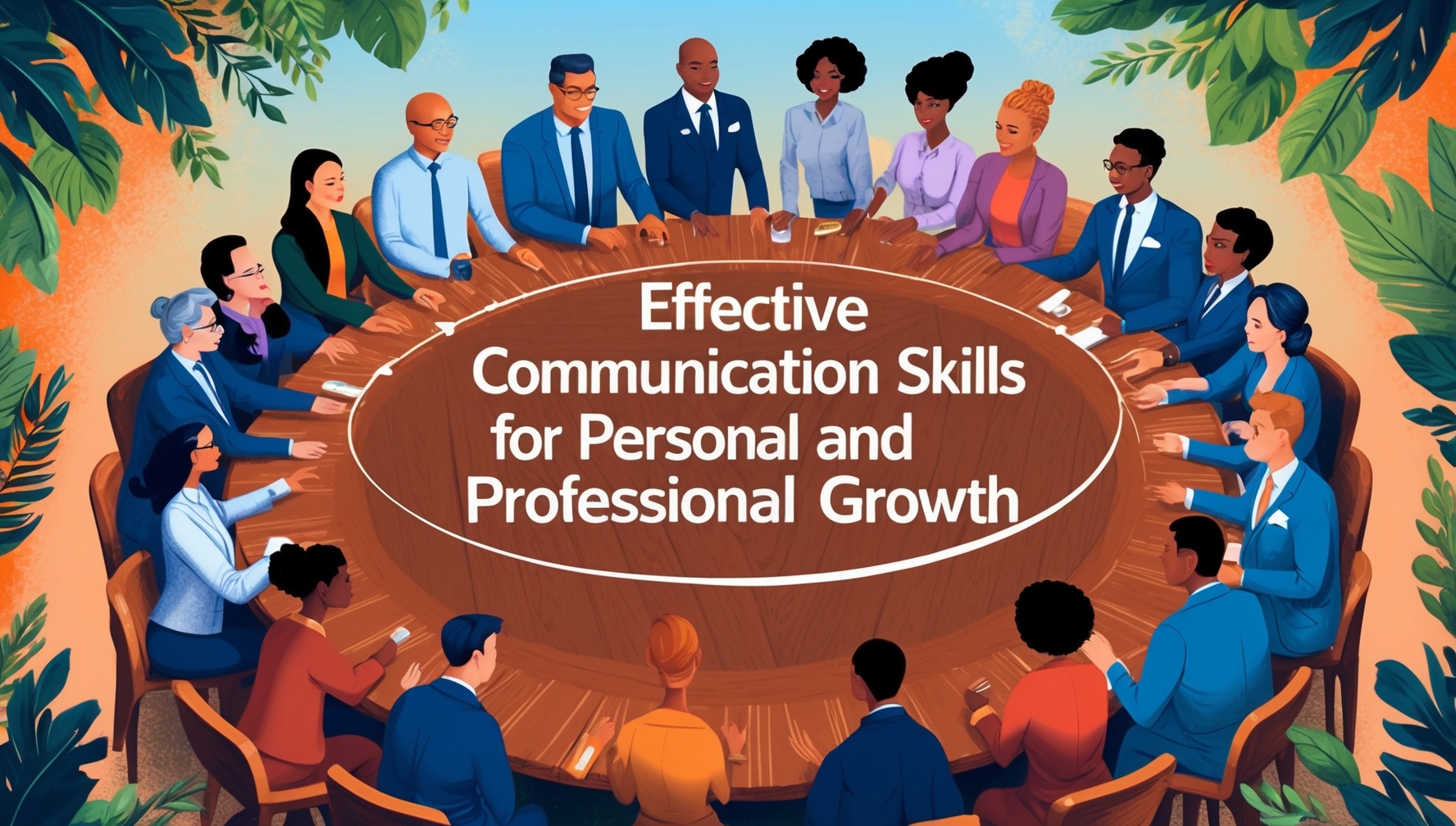Effective communication is a cornerstone of personal and professional success. It encompasses the ability to convey ideas clearly, listen actively, and build meaningful relationships. Whether in the workplace, at home, or in social settings, strong communication skills can enhance collaboration, foster understanding, and facilitate conflict resolution. This article explores the importance of effective communication skills and provides practical tips for improving these essential abilities.
The Importance of Effective Communication
- Building Relationships: Effective communication is vital for establishing and maintaining strong relationships. It allows individuals to express their thoughts and feelings, fostering trust and understanding. In both personal and professional contexts, good communication helps to create a supportive environment where individuals feel valued and heard.
- Enhancing Collaboration: In the workplace, effective communication promotes teamwork and collaboration. With the growing role of technology in education, mastering digital communication tools is essential for both personal and professional interactions. Clear communication ensures that team members understand their roles and responsibilities, leading to improved productivity and efficiency. It also enables the sharing of ideas and feedback, which can drive innovation and problem-solving.
- Conflict Resolution: Misunderstandings and conflicts are inevitable in any relationship. Effective communication skills can help individuals navigate these challenges by facilitating open dialogue and encouraging empathy. By addressing issues constructively, individuals can resolve conflicts and strengthen their relationships.
- Career Advancement: Strong communication skills are often linked to career success, especially when navigating important conversations such as financial planning tips or salary negotiations. Employers value employees who can articulate their ideas clearly, engage in meaningful conversations, and present information effectively. Mastering communication can set individuals apart in competitive job markets and lead to leadership opportunities.
Key Communication Skills to Develop
- Active Listening: Active listening is a critical component of effective communication. It involves fully concentrating on the speaker, understanding their message, and responding thoughtfully. To practice active listening:
- Eliminate distractions and focus on the speaker.
- Avoid interrupting and allow them to finish their thoughts.
- Summarize what you’ve heard to confirm understanding.
- Clear and Concise Speaking: Being able to express thoughts clearly and concisely is essential. Avoid jargon and overly complex language, and tailor your message to your audience. Practicing clarity in your speech can help prevent misunderstandings and ensure that your message is received as intended.
- Nonverbal Communication: Body language, facial expressions, and tone of voice can significantly impact how messages are perceived. Be mindful of your nonverbal cues and ensure they align with your verbal communication. For example, maintaining eye contact and using appropriate gestures can convey confidence and engagement.
- Empathy: Empathetic communication involves understanding and validating the feelings and perspectives of others. Practicing empathy can enhance relationships and foster a supportive atmosphere. To develop empathy:
- Acknowledge the emotions of others.
- Ask open-ended questions to encourage sharing.
- Reflect on their experiences to gain a deeper understanding
- Feedback Skills: Providing and receiving feedback is essential for personal and professional growth. When giving feedback, be constructive and specific. When receiving feedback, approach it with an open mind and a willingness to learn. This two-way process can lead to improved performance and stronger relationships.
Practical Tips for Improving Communication Skills
- Practice Regularly: Like any skill, effective communication improves with practice. Engage in conversations, participate in public speaking events, or join groups that focus on communication skills.
- Seek Feedback: Ask for feedback from trusted friends, family, or colleagues about your communication style. Constructive criticism can help identify areas for improvement.
- Read and Write: Reading widely can enhance your vocabulary and comprehension, while writing can help clarify your thoughts. Consider journaling or blogging to practice articulating your ideas.
- Take Communication Courses: Enroll in workshops or online courses that focus on communication skills. These structured programs can provide valuable insights and techniques for improvement.
Conclusion
Effective communication skills are essential for personal and professional growth. By actively listening, speaking clearly, being mindful of nonverbal cues, practicing empathy, and honing feedback skills, individuals can enhance their ability to connect with others and navigate various situations successfully. Investing in communication skills not only fosters stronger relationships but also opens doors to new opportunities and career advancement.
